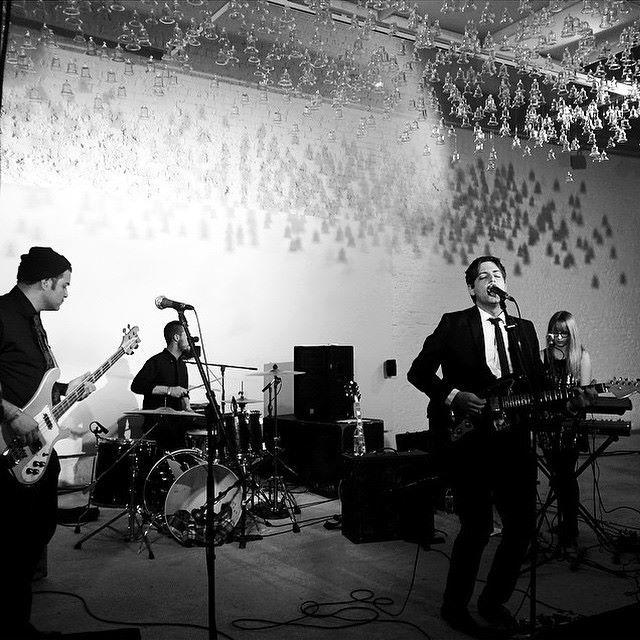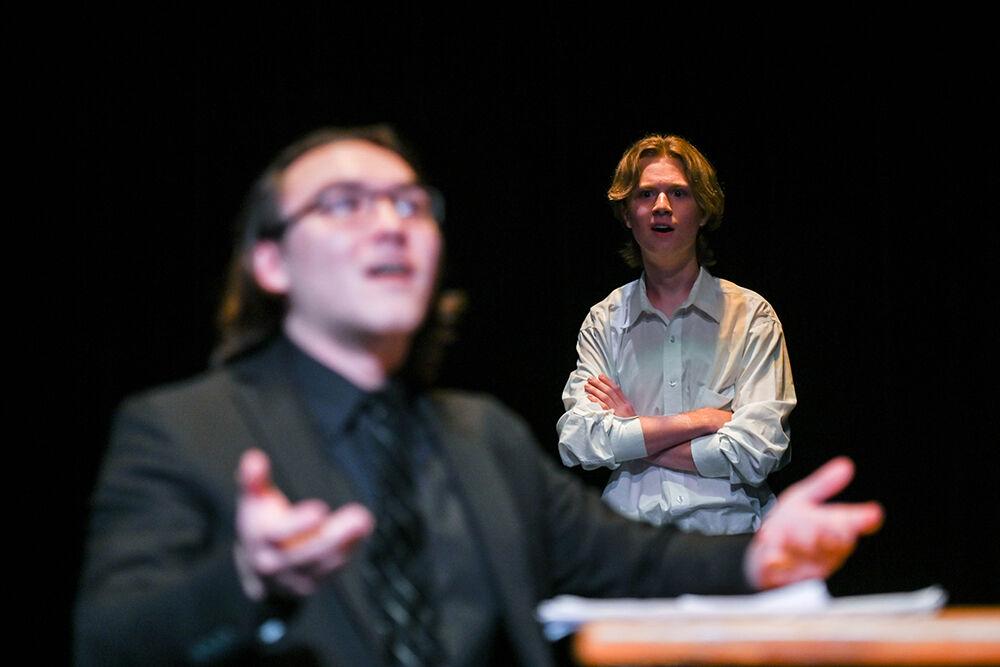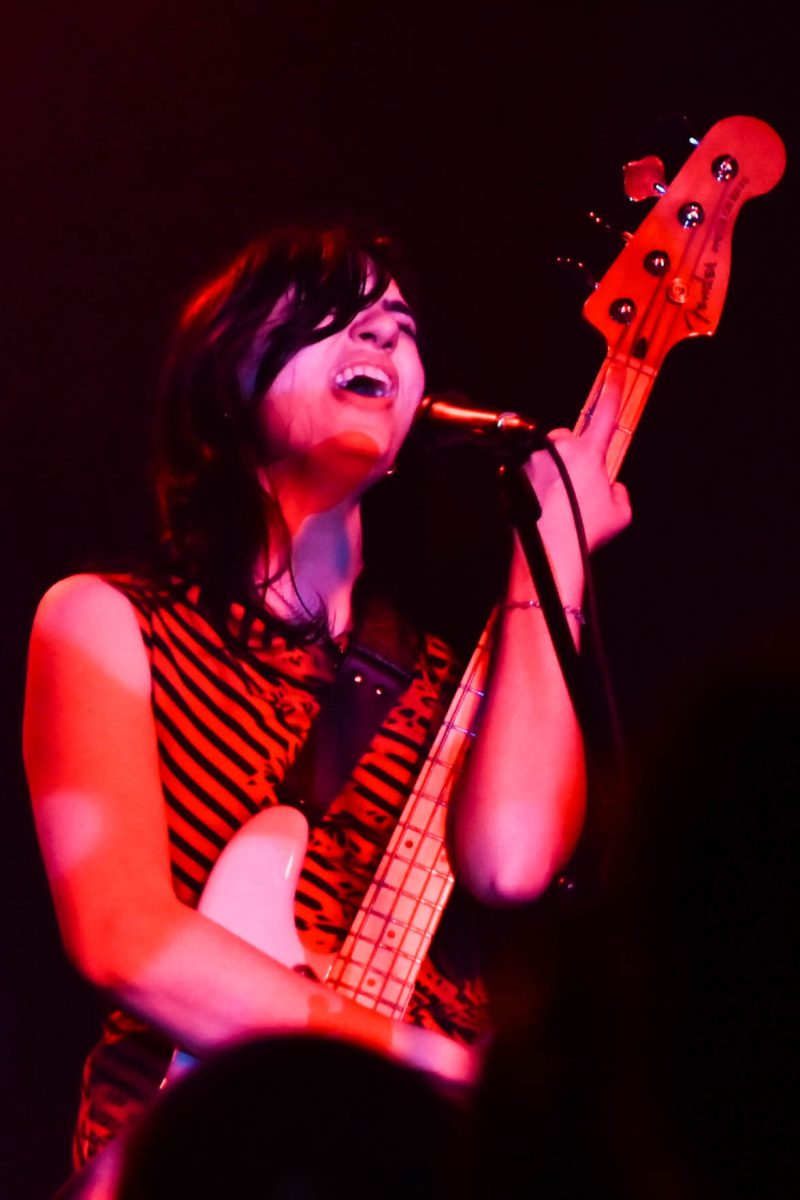In the early days of choosing “top-10 friends” and coding MySpace profiles, one young, heartbroken guy with a guitar and a synthesizer was using the site for a different purpose — to post songs from a homemade demo album, “The Love Language.” Now, The Love Language acts as one of Raleigh’s much-loved indie rock groups, and has gained fans across the nation.
The first album, released in 2009, has all the character of an album made by one person: Stuart McLamb … and a Boss BR 864 multi-tracker in a storage unit; but, it gives charm to the spacey, bubbly pop ballads which were crafted to mend the aches of a bad breakup. Although the music on the initial album is rather emotional, its intention was much more lighthearted. McLamb talked about the band’s intriguing name.
“I started posting these songs that were cathartic and very much about the breakup, and that’s when I named it ‘The Love Language’ as sort of an inside joke between me and her,” McLamb said. “I just felt like she wouldn’t roll her eyes and think, ‘oh here’s the break up song,’ but [that it would] lighten up the mood. So it was only supposed to be a funny name instead of a real sappy one. I thought it would be a lighthearted title for a project that deals with some heavy subject matter.”
Native to North Carolina, “The Love Language” grew into a touring and recording project led by McLamb who taught himself music as a child after inheriting a guitar from his grandfather. He is the backbone of the operation, both writing the music and its lyrical counterparts.
The band has released three albums, “The Love Language” in 2009, “Libraries” in 2010 and, in 2013, “Ruby Red” — which pays tribute to the Ruby Red music and art co-op where the album was recorded. The first one was home-recorded from storage units and relative’s houses, but the second two were done locally with Flying Tiger Studios and Ruby Red.
For McLamb, the music, which varies in themes and sounds, is meant to help him, and hopefully listeners cope with being alive and frustrated in 2018, as well. However, McLamb shared that his music sadly doesn’t have all the answers.
“I feel like my songs have a lot of questions, but not a lot of answers,” he said. “But at the same time, they’re meant to be cathartic and by the time the song is over you feel better, but without beating you over the head with some kind of answer or solution.”
Although it’s primarily a solo project in concept, the band would not be what it is now without the accompaniment of other talented musicians who have helped develop The Love Language’s signature sound. Over the years, McLamb has worked with 15 to 20 musicians, a rotating cast of sorts that help him record and tour.
“Here’s the thing, especially creating it myself, I try to make a big sound but it’s still a pretty solitary process in making it,” McLamb said. “So, the best thing about rehearsing with the band and trying to get the new songs learned then playing them is just being able to have that come to a communal setting, which is the goal the whole time, and it feels great.”
But, for the last five years, the band has been with Autumn Ehinger on keyboard, Thomas Simpson on drums and Eddie Sanchez on the bass guitar. Simpson has played with McLamb the longest, since the two got into a tussle after an open jam night when they were teenagers. Simpson described the band’s chemistry as energetic and close.
“There’s always something going on — some idea, some project,” Simpson said. “We all just feed off of that [energy] and off of each other. We’ve been this rendition of the band for the last five or six years, so we all know each other very intimately and are very close and get along well. It’s a really fun band to be a part of. There’s no drama. There’s no fist fights — we got that out of the way early on.”
McLamb’s hoping to continue playing, evolving the sound of The Love Language and growing a community of people who turn to music for cathartic, connective experience. They don’t seek fame and fortune, but rather strive to be that thing that people can turn to and enjoy, especially during turbulent political and social times.
“If they misunderstand a lyric and they like that lyric more, I’m all about it,” McLamb said. “[When] there is some moment in the creative process that I felt very floored or felt a certain emotion or cathartic feeling, I hope that translates to somebody else listening to it. If they don’t like it, whatever. But I hope that there are people that connect with it.”
Five years since the release of the last album, their next album is expected to release this summer, bringing the group together again for touring around the United States, and hopefully Europe and Canada as well.












